In a country where over 400 million children are increasingly finding their identities, relationships, and futures shaped by digital platforms, a groundbreaking initiative has emerged from the northeastern state of Assam. ‘Infantia,’ India’s first national dialogue on children’s digital rights, recently convened in Guwahati, marking what many experts are calling a watershed moment in how India approaches the complex intersection of childhood and technology.
Table of contents [Show]
- A National Dialogue Born of Necessity
- Law Enforcement Reimagined: From Policing to Partnership
- Celebrity Voices Amplify the Message
- The Emotional Terrain of Digital Parenting
- Research-Backed Approaches to Digital Parenting
- A Multi-Sector Call to Action
- From Dialogue to Action
- The Road Ahead: Reimagining Childhood in Digital India
A National Dialogue Born of Necessity
The digital landscape that today’s children navigate bears little resemblance to anything previous generations experienced. As smartphones become ubiquitous and online access begins earlier—often before children develop critical thinking skills—parents, educators, and policymakers across India have found themselves struggling to keep pace with rapidly evolving challenges.
It’s against this backdrop that PIIR Foundation, in collaboration with Assam Police and supported by UNICEF India, organised Infantia as more than just a conference—but as the beginning of a movement.
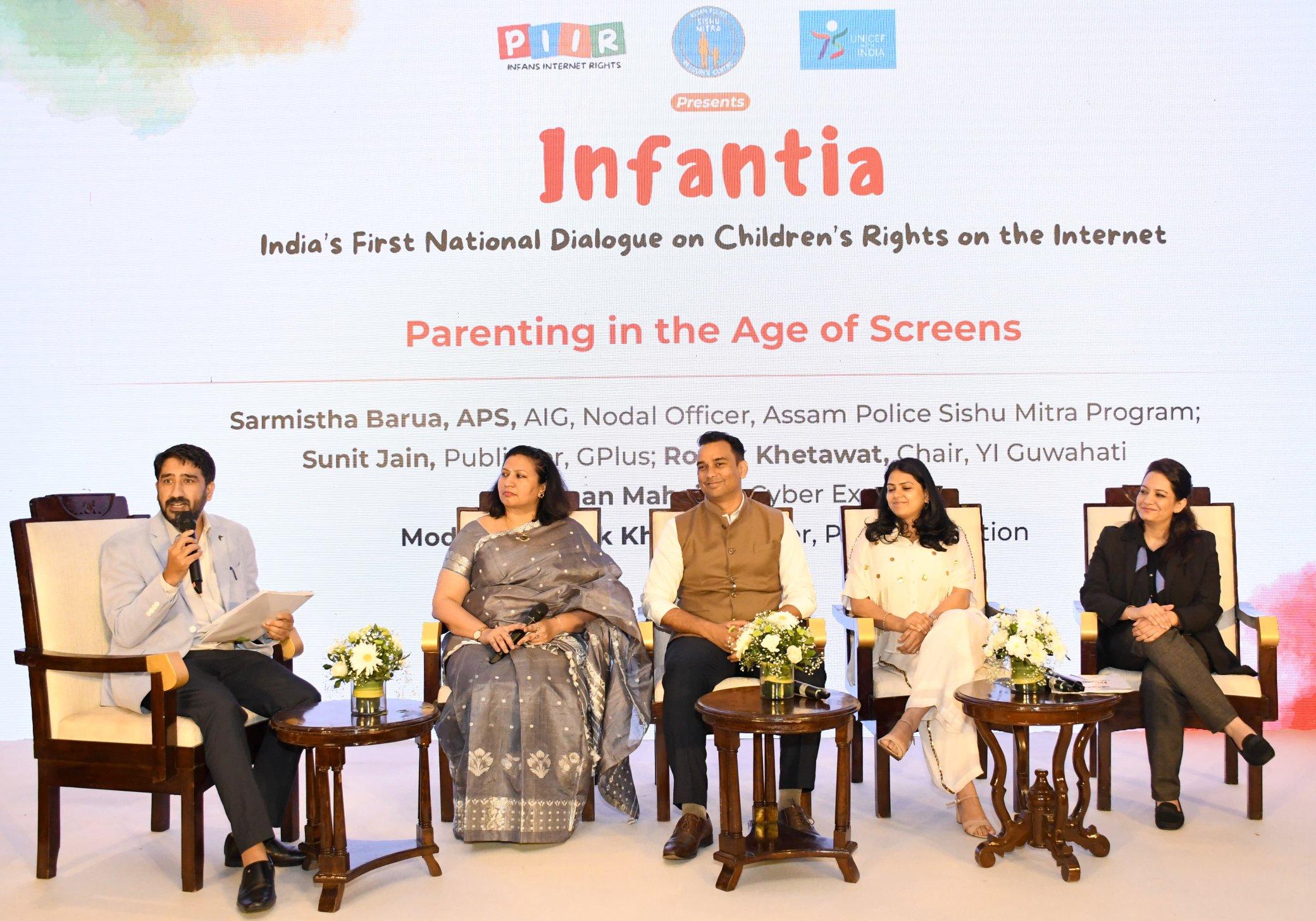
“Children’s digital rights cannot wait,” said Salik Khan, Founder of PIIR Foundation, during the event’s opening address.
“We are living through an era where the institution of parenting—older than civilization itself—must be urgently reimagined. Our children are growing up online, often without a roadmap.”
Law Enforcement Reimagined: From Policing to Partnership
Perhaps most striking about Infantia was the central role played by law enforcement—not as mere enforcers, but as community allies in a rights-based approach to child safety. Shri Harmeet Singh, IPS, Director General of Police, Assam, delivered a keynote that positioned the police as partners in a preventative, empowering ecosystem rather than just responders to digital harm. “In the digital world, protecting children begins with conversations that respect their agency, their voices, and their realities,” he noted, emphasising that the dialogue needs to extend beyond conference walls into homes, schools, and communities across India.

The Assam Police’s involvement represents a significant evolution in how law enforcement conceptualises its role in addressing online risks to children.
Bollywood actor and parenting influencer Neha Dhupia brought mainstream visibility to the discussions through a candid fireside chat that touched on the modern pressure to document and share children’s lives online. Notably, she praised the Assam Police and PIIR Foundation’s #DontBeASharent campaign, cautioning against the oversharing that has become normalised on social platforms.
“Not everything about your child needs to be posted online,” Dhupia emphasised, echoing growing concerns about children’s right to privacy in an age when their digital footprints often begin before birth.
The Emotional Terrain of Digital Parenting
In what many attendees described as the event’s most moving segment, renowned Assamese actors Kopil Bora and Zerifa Wahid performed a theatrical piece that captured the emotional complexities facing today’s parents. Their performance dramatised familiar scenes of confusion, anxiety, and hope that define parenting in the age of screens and constant connectivity.
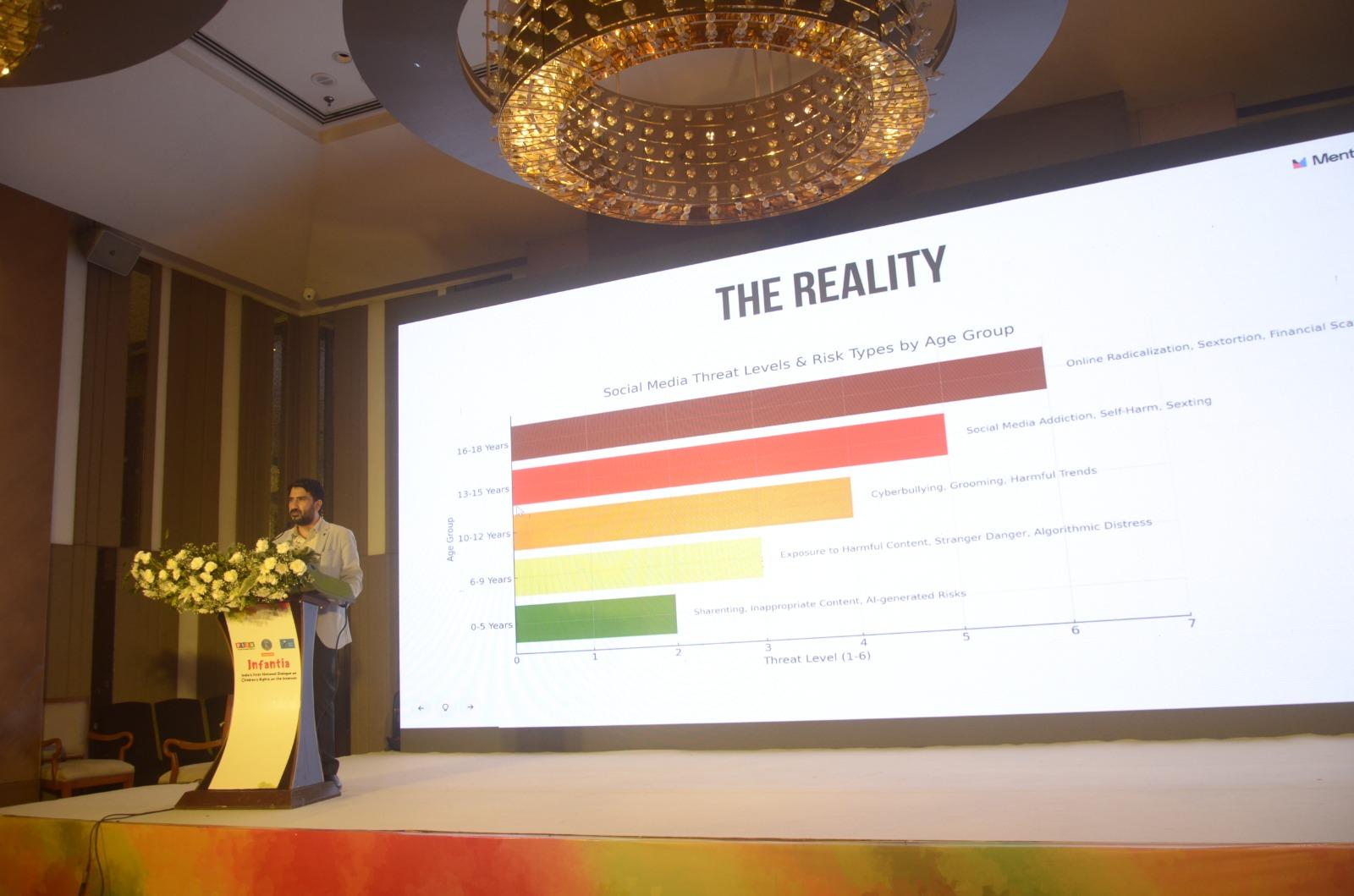
The performance underscored a critical insight emerging from Infantia: addressing digital challenges for children isn’t merely a technical or policy matter—it’s fundamentally about human relationships, communication, and trust.
Research-Backed Approaches to Digital Parenting
Beyond inspirational talks and emotional appeals, Infantia grounded its approach in emerging research on how Indian children actually use the internet. PIIR Foundation led a high-impact workshop that translated this research into practical strategies, giving participants tools to bridge the often vast gap between children’s online and offline lives.
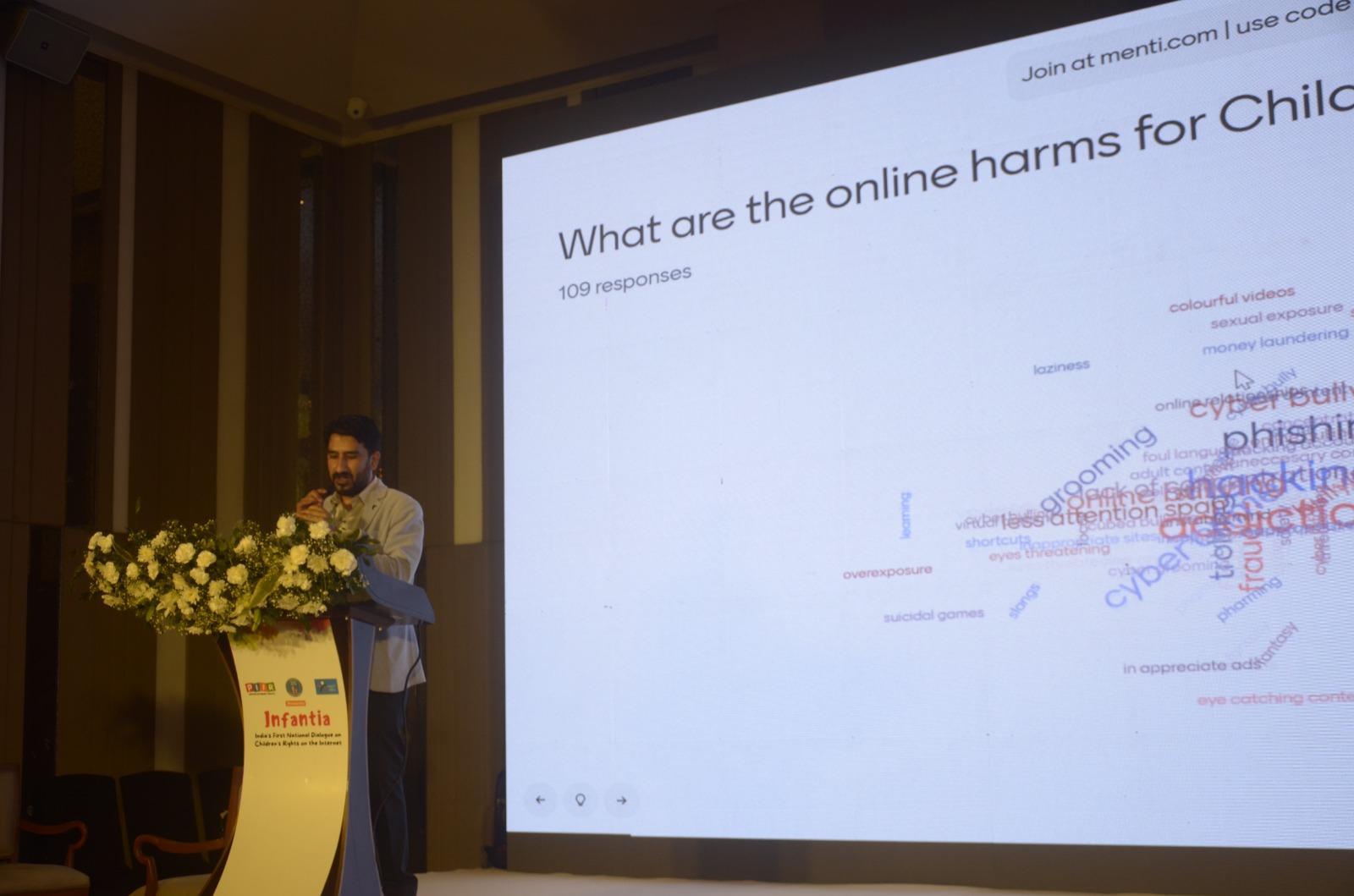
The workshop highlighted concerning patterns: many Indian children navigate complex digital environments with minimal adult guidance, often encountering inappropriate content or potential risks without adequate preparation or protection.
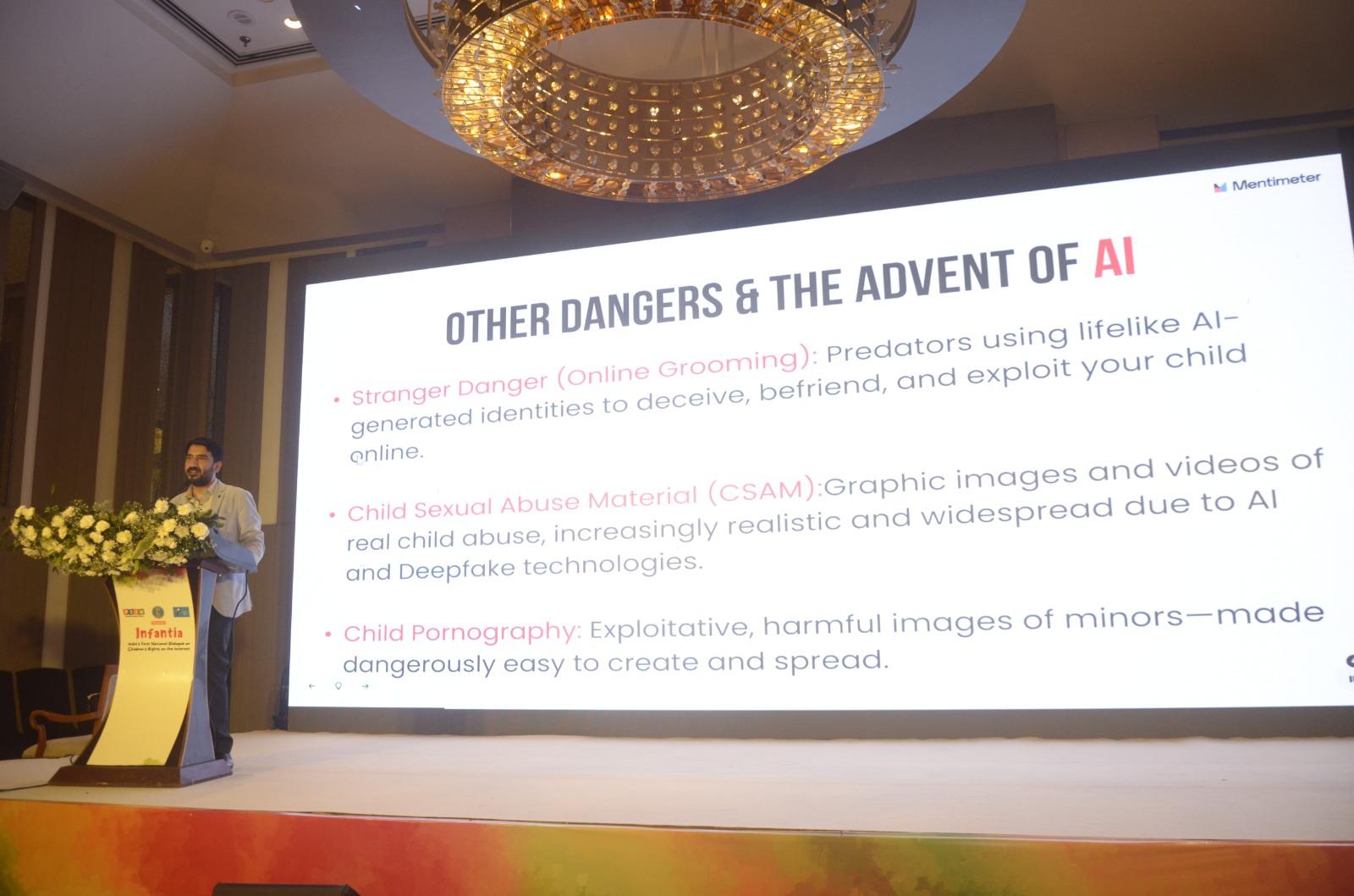
A Multi-Sector Call to Action
What distinguishes Infantia from similar initiatives is its comprehensive, multi-stakeholder approach. The event brought together representatives from:
- Law enforcement agencies tasked with investigating online crimes against children
- Educational institutions rethinking digital literacy curricula
- Parent groups navigating screen time and content concerns
- Entertainment industry figures examining their influence on children’s digital experiences
- Civil society organizations advocating for children’s rights
- Policy experts working on legal frameworks for the digital age
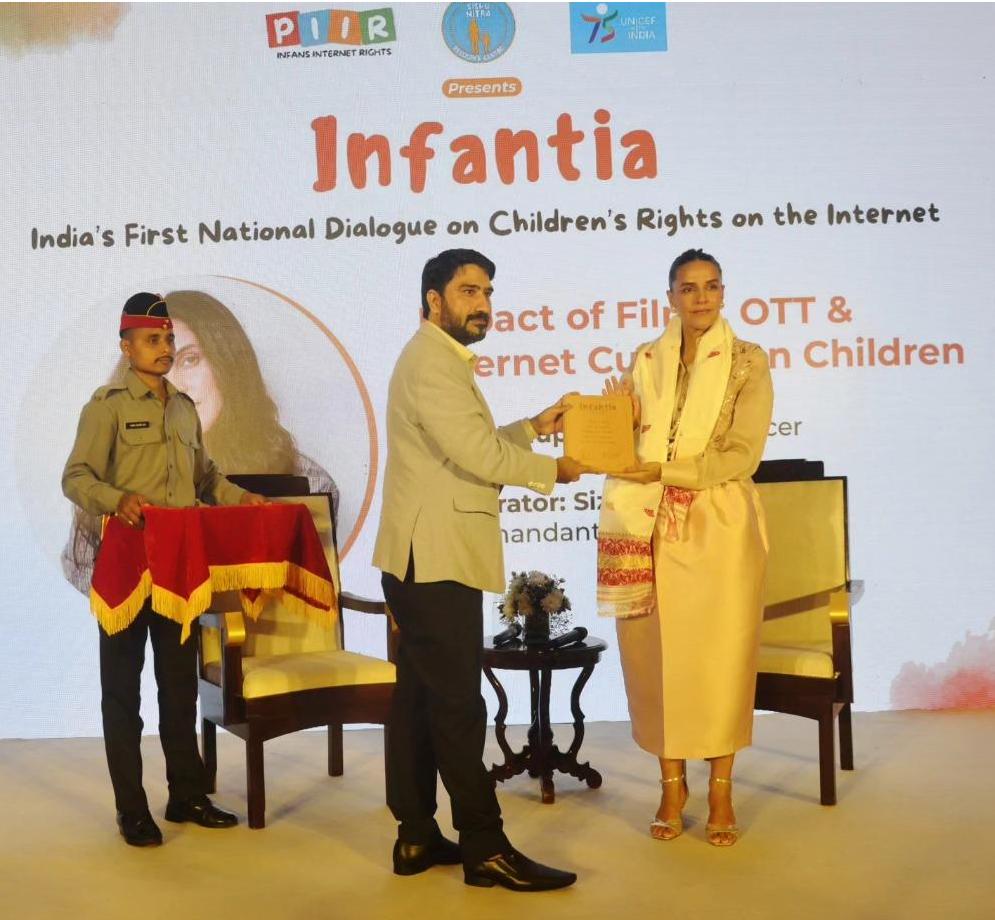
This diversity of perspectives reflects the reality that no single sector can address the challenges in isolation—protecting and empowering children online requires coordinated effort across society.
From Dialogue to Action
PIIR Foundation has announced that Infantia represents only the beginning of its work in this space. The organization has outlined ambitious next steps, including:
- Developing comprehensive policy frameworks for children’s digital rights in India
- Creating advocacy programs specifically designed for schools and parents
- Collaborating with law enforcement to enhance investigation capabilities for online crimes against children
- Training officials to recognize signs of Problematic Internet Use (PIU) among young people
- Establishing child-sensitive counseling mechanisms within investigative processes
The Road Ahead: Reimagining Childhood in Digital India
As India continues its rapid digital transformation, initiatives like Infantia represent a crucial recognition that technology is fundamentally reshaping childhood itself. The questions raised extend beyond safety concerns to more profound considerations: How do digital platforms affect children’s development, identity formation, and understanding of relationships? What rights should children have in digital spaces? How can adults support children’s agency while providing necessary protection?
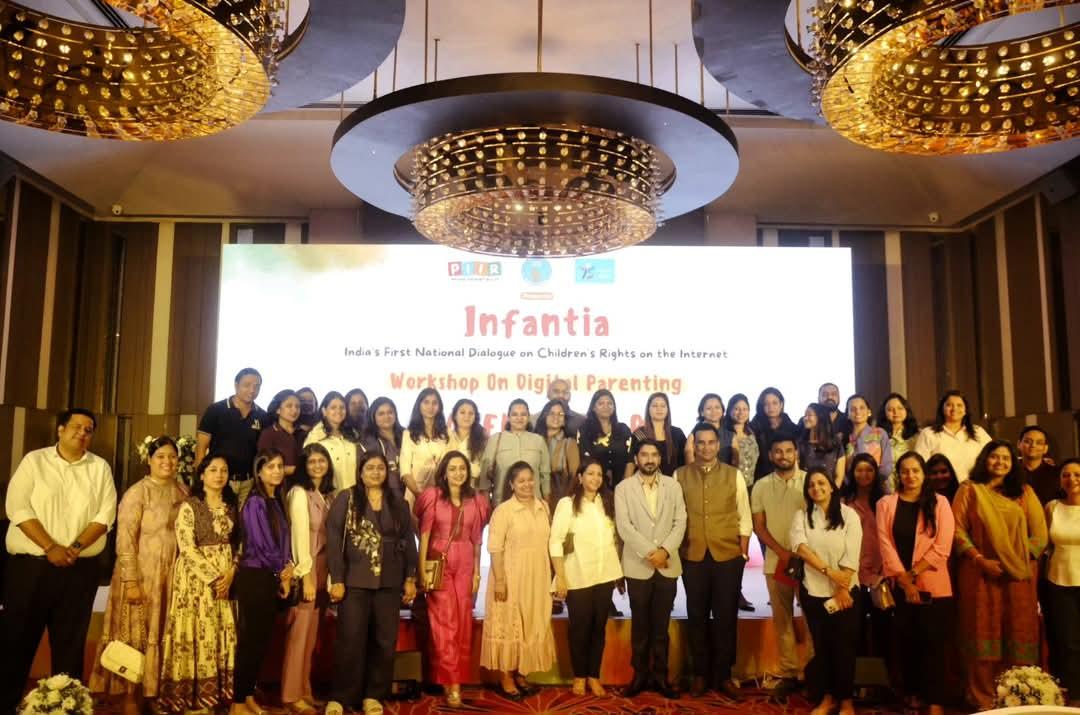
“We’re not just talking about keeping children safe online,” a participant noted. “We’re discussing how to ensure they thrive in a world that increasingly blurs the line between digital and physical existence.”
In hosting India’s first national dialogue on children’s digital rights, PIIR Foundation, Assam Police, and their partners have initiated a conversation that appears increasingly essential to the future of childhood in India. The challenge now lies in translating Infantia’s insights into lasting change across homes, classrooms, policy frameworks, and digital platforms themselves.
Watch the entire event here





 Guiding and Empowering Parents with fact-checked excellence -
Guiding and Empowering Parents with fact-checked excellence -